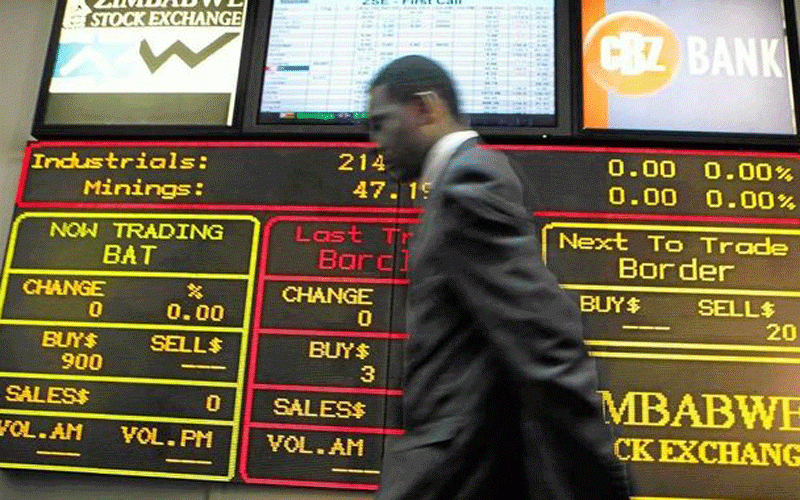
THE Zimbabwe Stock Exchange (ZSE) and the Victoria Falls Stock Exchange (VFEX) experienced contrasting performances in August 2024, following a highly bullish momentum in July.
While the ZSE achieved a positive return in August against a negative outturn in VFEX, the dwindled performance on ZSE was alarming. In July 2024, the ZSE’s All Share Index achieved a remarkable nominal growth of 54%, translating to a 53% increase in US dollar terms.
However, this bullish momentum slowed significantly in August, with the index recording a nominal return of just 1,2%, equivalent to 0,7% in US dollar terms.
On the other hand, the VFEX saw a decline of 1,1% in August, partially offsetting the positive 2,2% return achieved in July.
The ZSE’s performance in August was primarily impacted by policy uncertainties. Investors were wary of potential monetary policy tightening in response to bullish inflation figures in both ZiG (Zimbabwe Gold) and US dollar terms.
However, towards the end of the month the Reserve Bank of Zimbabwe (RBZ) announced monetary policy adjustments, including maintaining borrowing rates and injecting liquidity following increased acceptability of ZiG and exchange stability on interbank market.
These measures, on the other hand, expose the economy to exacerbated currency instability, as the exchange premium has already surpassed 75% within five months of the ZiG’s introduction.
Increased local currency liquidity will drive depreciation on the parallel market, while the interbank rate remains stable due to its fixation against global gold prices.
- Stop clinging to decaying state firms
- Piggy's Trading Investing Tips: De-risking mining projects
- Chance to buy 'undervalued' counters: FBC
- Zimbabwe's capital markets collapse
Keep Reading
As the ZiG loses value, investors are likely to seek refuge in ZSE stocks. However, the expanding premium will also simultaneously erode portfolios in real terms, reducing foreign investor appetite. Consequently, a bull-run in market heavyweights is anticipated as a hedge against currency loss, while penny stocks are expected to remain stable. This is because, during times of uncertainty and inflation, investors prefer high-value stocks.
Meanwhile, the factors influencing the ZSE appear to be mutually inclusive on VFEX despite the former being denominated in local currency and the other being an offshore market.
Increased exchange rate volatility is likely to drive withdrawals of foreign currency from formal banking channels, negatively impacting activity levels on VFEX in the short to medium-term.
If the monetary policy remains expansionary, a further slowdown in VFEX trades is expected, potentially reversing the positive year-to-date performance.
In the short term, the ZSE is likely to experience increased volatility due to the anticipated depreciation of the ZiG. Investors may continue to seek refuge in market heavyweights, driving up their prices, while penny stocks remain relatively stable.
However, the erosion of portfolio values in real terms could deter foreign investment, limiting the overall growth potential of the ZSE.
In the medium term, the effectiveness of the RBZ’s measures will be crucial. If the local currency gains stability and improved acceptability, it could restore investor confidence and attract foreign investment. However, if the currency continues to depreciate on the back of increased supply, the ZSE may face prolonged instability, with investors increasingly turning to the parallel market to grab the greenback for value preservation.
For the VFEX, the short-term outlook is less optimistic. Increased exchange rate volatility and foreign currency withdrawals are likely to dampen trading activity.
However, in the medium-term, if the local currency stabilises and the macro-economic environment improves (leading to increased confidence in policies and formal banking channels), the VFEX could see resurgence in activity as investors regain confidence in the market.
Nonetheless, the performance of the ZSE and VFEX in August 2024 highlights the complex interplay of monetary policy, currency stability, and how these dynamics affect investor sentiment.
Moving forward, the stability of the ZiG and the effectiveness of the central bank’s measures will be crucial in determining the trajectory of both exchanges.
- Duma is a financial analyst and accountant at Equity Axis, a leading media and financial research firm in Zimbabwe. — [email protected] or [email protected], X: TWDuma_











